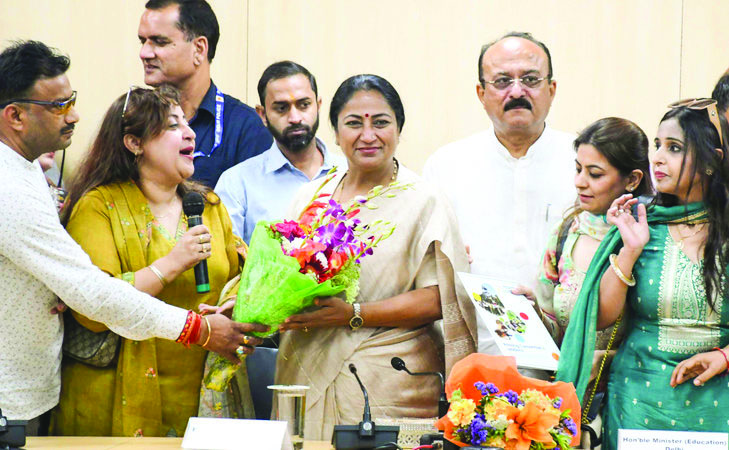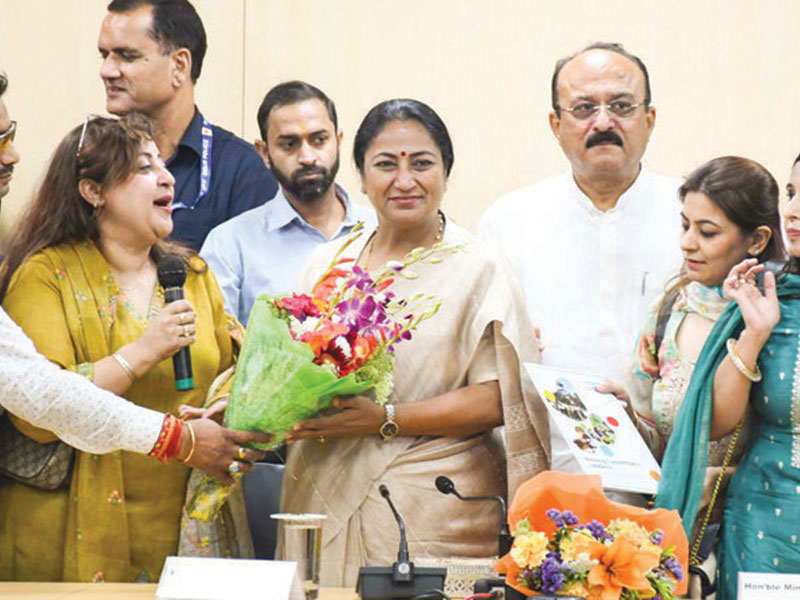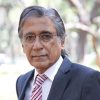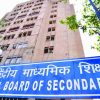Delhi: Tuition fees regulation mess
Autar Nehru (Delhi)

Delhi chief minister Rekha Gupta & education minister Ashish Sood (centre right)
Within India’s rapidly expanding and influential middle class — whose number is estimated by PRICE Report at 432 million — which shuns the country’s 1 million (state) government primary-secondary schools defined by ramshackle infrastructure, chronic teacher absenteeism and abysmal learning outcomes like the plague, the issue of capping aka “regulating” private school tuition fees is a hardy perennial.
With the new academic year set to commence in July, following public uproar over annual fee hikes in private schools, the newly elected Bharatiya Janata Party (BJP) government of Delhi has introduced new school fees regulation legislation. On April 29, the state government approved a draft Delhi School Education (Transparency in Fixation and Regulation of Fees) Bill, 2025.
The Bill proposes establishment of a three-tier structure — school-specific fees committees, district fee appellate committees and revision committees — to oversee fee structures and address parents’ grievances.However, the draft has not been made public at time of writing.
According to reliable sources within the state government, the all-important school-specific committee will comprise six school representatives (including principal and three teachers), five parents/guardians (selected by draw, with representation from women and reserved categories), and a nominee of the DoE (Department of Education). The Bill details specific parameters for fee determination, including the school’s location, infrastructure, education standards, operating expenses, and surplus revenue. For violations, the Bill proposes penalties ranging from Rs.1 lakh to Rs.10 lakh. It also prohibits coercive action against students — such as expulsion or withholding results — for non-payment of fees.
Although under Article 19 (1) (g) of the Constitution, all citizens have a fundamental right to “practice any profession, or carry on any occupation, trade or business,” the Supreme Court, packed with leftist “committed” judges in the 1970s, were inclined to permit government to “dominate the commanding heights of the Indian economy” as a result of which private enterprises, including private education institutions, were directly or indirectly (through entanglement in red tape) denied this and other freedoms.
Following the landmark liberalisation and deregulation of the Indian economy in 1991 and retirement of committed leftist judges, in TMA Pai vs. Union of India (2002) an 11-judge bench of the apex court over-ruled its own judgement in Unnikrshnan’s Case (1993) and restored the full right of administration, including admissions on merit to private professional colleges (and by implication private schools) and permitted them to charge “reasonable” tuition fees and earn revenue surpluses for reinvestment in institutional growth and development.
However in a “clarification” judgement on applying the principles laid down in the T.M.A Pai Case, in Islamic Academy vs. State of Karnataka (2003), a five-judge bench of the Supreme Court decreed the appointment of Fee Committees, chaired by retired high court judges, to approve and regulate fees of private education institutions to prevent profiteering. This clarification judgement has been seized upon by a large number of state governments to appoint fee fixation committees to regulate private school fees.
“Private involvement in education has a long tradition in India. Almost half of in-school students today attend private schools. India depends equally on private schools to educate her children. Therefore, we need to find ways for sarkaar and bazaar to work together. Unfortunately, government and the judiciary have assumed an adversarial role, painting all private schools with the same brush. If government focuses on improving the quality of government schools, as they become better, the demand for admission into private schools will moderate and many of these transient issues would disappear,” advises Dr. Parth Shah, former professor of economics at the University of Michigan and currently Dean of the Indian School of Public Policy, Delhi (estb. 2019).
This year, controversy erupted after several private schools announced fee increases of up to 40 percent, sparking protests from parents. The opposition Aam Aadmi Party (AAP), which while in office (2015-2025) strictly regulated private schools under provisions of the Delhi School Education Act (DSEA), 1973, and the Right to Education (RTE) Act, 2009, accused the BJP government of enabling profiteering. In response, recently sworn-in education minister Ashish Sood ordered an investigation into 600 of Delhi’s 1,677 private schools, issuing notices to ten worst “offenders”.
Comments Sanjay Yadav, Principal of the high-ranked Ahlcon International School, Delhi which received a DoE notice: “Quality education can’t be provided without cost — teacher salaries, infrastructure, maintenance, increase every year. Tuition fees are our only income, so annual rises are inevitable. I think this is understood by most parents.”
Meanwhile it’s certain that the new Bill, when promulgated into an Act, will provoke more litigation and the parents vs. schools vs. government saga will continue.
















Add comment